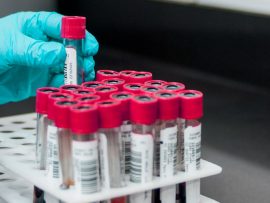Abstract Background/Aim Recent literature suggested that the use of Minimal Invasive Extracorporeal Circulation (MIECC) may mitigate the inflammatory response in patients undergoing cardiac surgery. We aimed to perform a meta-analysis..
Read MoreAbstract Introduction Cardiac surgery in infants often triggers a severe inflammatory response. The role of biomarkers in predicting clinical outcomes in this group of patients has been debated in the..
Read MoreAbstract Background: Cardiac surgery-associated acute kidney injury (CSA-AKI) is a prevalent complication with poor outcomes, and its early prediction remains a challenging task. Currently available biomarkers for acute kidney injury (AKI)..
Read MoreAbstract Background Acute kidney injury (AKI) poses a significant challenge in pediatric cardiac surgery, having a profound impact on patient morbidity and mortality. This study aims to determine the incidence..
Read MoreAbstract Background Acute kidney injury (AKI) represents a significant post-cardiac surgery complication, particularly prevalent among individuals with pre-existing renal dysfunction. Chronic kidney disease (CKD) is frequently accompanied by persistent, low-grade..
Read MoreAbstract Cardiovascular studies, including nursing research, frequently integrate biomarkers for diagnostic, prognostic, monitoring, and therapeutic insights. However, effective utilization of biomarker data demands careful consideration. In the study design phase,..
Read MoreAbstract Objectives Minimally invasive cardiac surgery techniques are increasingly used but have longer cardiopulmonary bypass time, which may increase inflammatory response and negatively affect coagulation. Our aim was to compare..
Read MoreAbstract Background Isolated limb perfusion (ILP) is a regional cancer treatment in which high-dose chemotherapy is administered in an isolated extremity. The main side effect is regional toxicity, which occasionally..
Read MoreAbstract Biomarkers of cardiac dysfunction may aid in decision making about organ recovery and optimal timing of separation from extracorporeal membrane oxygenation (ECMO). We conducted a prospective observational study of..
Read MoreAbstract Background Postoperative cognitive dysfunction is common after cardiac surgery. Postoperative measurements of brain injury biomarkers may identify brain damage and predict cognitive dysfunction. We describe the release patterns of..
Read MoreAbstract Background: Early identification of patients at risk for cardiac surgery-associated acute kidney injury (CS-AKI) based on novel biomarkers and tissue oxygen saturation might enable intervention to reduce kidney injury...
Read MoreAbstract OBJECTIVES: Cardiopulmonary bypass triggers systemic inflammation, resulting in lung injury, and frequently leads to prolonged mechanical ventilation. Biomarkers of systemic inflammation are required to predict the risk of such..
Read MoreAbstract Objectives To assess the ability of the biomarkers neuron-specific enolase (NSE), tau, neurofilament light chain (NFL), and glial fibrillary acidic protein (GFAP) to predict postoperative cognitive dysfunction (POCD) at..
Read MoreAbstract Acute kidney injury (AKI) is now recognized as a heterogeneous syndrome that not only affects acute morbidity and mortality, but also a patient’s long-term prognosis. In this narrative review,..
Read MoreAbstract Background Children undergoing a cardiac surgical procedure are at increased risk for acute kidney injury (AKI). Novel biomarkers are needed to improve risk stratification of AKI after cardiac surgery...
Read MoreAbstract Background Early detection of acute kidney injury (AKI) after cardiac surgery has improved recently with the discovery and validation of novel urinary biomarkers. However, objective tools to predict the..
Read MoreAbstract Background Acute kidney injury (AKI) is common after cardiac surgery and profoundly affects postoperative mortality and morbidity. There are no validated methods to assess risk of AKI intraoperatively. Methods..
Read More










